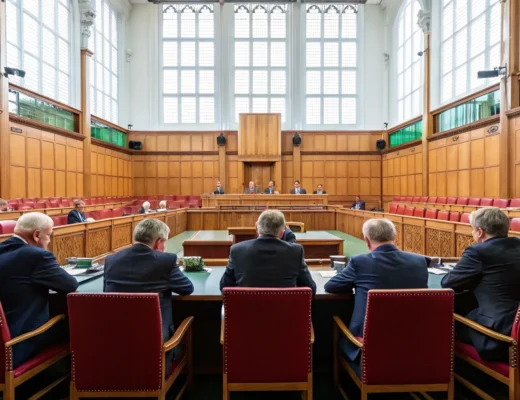The Federal Reserve’s decision to extend periods of low interest rates is impacting the global economy. This policy aims to stimulate economic activity and fight inflation, but it also poses several challenges. For instance, savers are discouraged by the minimal returns on their deposits.
At the same time, this approach can lead to instability due to increased speculative activities, as investors are pushed towards riskier assets. Lower borrowing costs could result in excessive borrowing, potentially triggering an economic downturn.
The effects are keenly felt in countries reliant on foreign investments, such as Japan. With continuous low interest rates in the US, significant funds may flow to the American market, causing economic imbalances. The value of the Yen has been fluctuating, causing uncertainty within Japan’s financial market.
To add to Japan’s economic ructions, businesses must also deal with the effects of a changing world trade environment, including the recent tariff hikes imposed by the U.S. and a marked slowdown in sales to China, one of its largest markets. Despite such challenges, Japan’s government is implementing strategies to stabilize the economy and restore investor confidence.
This period presents a challenging path for Japan’s economic recovery, especially with the nation dealing with internal issues like an aging population, declining birth rates, and a shrinking workforce.
Effects of Fed’s low-interest policy globally
The challenges are not limited to internal issues but also international monetary decisions, putting the economy’s resilience to the test.
However, despite the economic turmoil, experts are hopeful. The innovative technology market in Japan and its strong export sector could potentially lead the country out of this turbulent period. Regardless, how effectively Japan navigates through these complexities is a true test of its economic resilience and agility.
Due to such global changes, the Japanese economic sector has a sense of urgency to implement robust strategies to cushion and minimize potential repercussions. This includes fostering collaboration with international financial partners.
The Federal Reserve’s major shift is worrisome for economies like Japan as it signifies the rise of inflation that can potentially weaken the Yen and increase domestic prices. Nevertheless, Japan is considering strategies such as reducing public debt, implementing structural reforms, and enhancing productivity as a buffer against such inflation.
As businesses tackle the pandemic’s restraints and changing regulatory frameworks, they must stay alert and flexible. The broader economic implications of these policy changes can potentially lead to prolonged economic instability. Hence, a business’s resilience and adaptability will be keys to its success in the post-pandemic world.







